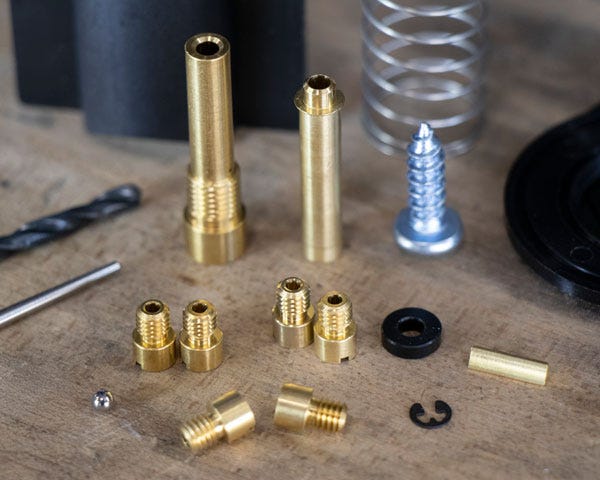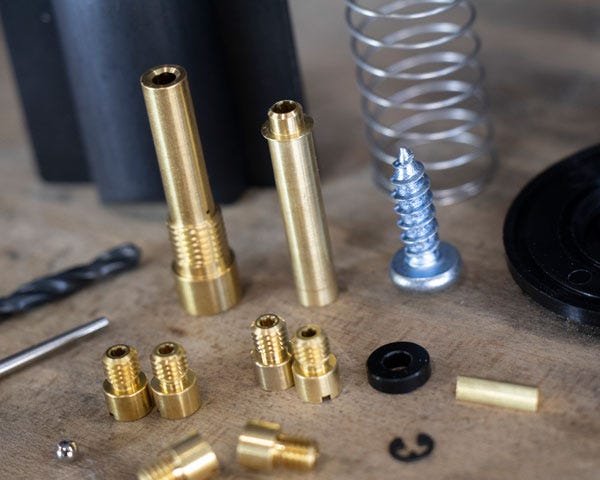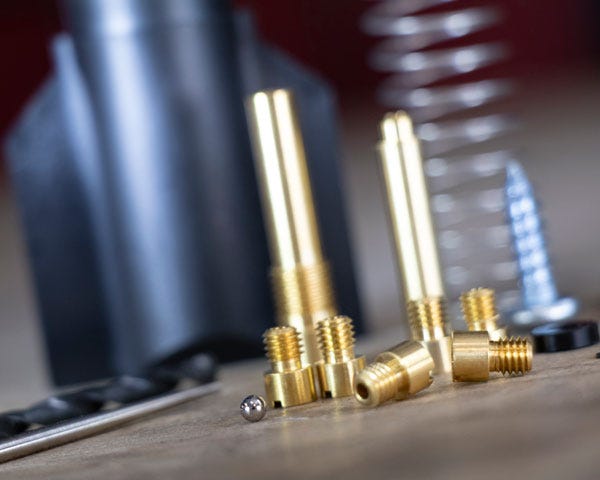Features:
- 5-8% power range
- Fully adjustable
- Increases power and drivability
- For carbureted vehicles only

Tested to Perfection
Dynojet's jet kits are designed to upgrade every part of your carburetors air/fuel ratio with included step-by-step instructions for whatever you need upgraded. From your fuel needle to the main air jet, Dynojet has extensively tested every component, which means that you'll see results as soon as you rev the engine.

Smoother Power
These jet kits give some extreme upgrades in a small package. They increase power and smoothness throughout the entire rev range while maintaining fuel economy. There are multiple kit options from stock commuter motorcycles to race-ready bikes and everything in between.

Fits, 1998-2002, Suzuki, LTF500, Stage,1, CC, 500
Dynojet Jet Kits Whether you run a standard motorcycle, or a tuned sportbike, Dynojet Carburetor Jet Kits can provide you with a simple and affordable solution to all your carburetion problems. Dynojet Jet Kits increase power and smoothness throughout the entire rev range, while maintaining optimum fuel economy. Each Dynojet Jet Kit includes comprehensive instructions which show step-by-step installation and testing procedures to ensure a perfect setup every time. This is backed by free telephone and Internet support to Dynojet customers. They also have an effect similar to fuel injection by breaking up the fuel as it enters the air stream. Fuel Needle The design of the needle is where Dynojet spends most of its R&D time. The needle is designed to give the correct amount of fuel throughout the mid-range and is also designed to allow adjustment from groove 1 to groove 6 with little or no effect below 3000 R.P.M.; then with the correct end dimensions, the needle will have little effect on the main jet regardless of needle position. This isolates all circuits from each other and ensures easy set-up of the midrange and driveability. Main Air Jet This jet allows air into the emulsion tube to mix with fuel being drawn up from the float bowl. It controls the amount of fuel which can be pulled from the float bowl into the venturi. The larger the size of the main air jet, the more air you get and less fuel. The smaller the main air jet, the more fuel you get and less air. Dynojet alters this only to achieve the flattest possible fuel delivery curve. Pilot Circuit This controls 100% of the engine idle and 25% of the transition onto the needle. Doing so is proof that you are not using the other circuits correctly. Idle and off idle is controlled by the mixture screws and the float level which have the most positive effect below 4000 R.P.M. On some models the pilot air jet is changed to provide optimum fuel economy. Correct balancing of the carburetors also ensures a smooth idle. Main Jet Develop main jets to correctly serve two functions; static load and dynamic load. The static load is the fuel received through the main jet in the upper gears, where the tachometer is moving very slow. The dynamic fueling portion of the main jet is the amount of fuel received from the jet in the mid-range potion of the power. For example, you have a GSXR1100 G,H with #130 main jets. You then install #125 mains. After running the bike you notice the top end has improved but the mid-range doesn't pull as well. You then install #135 mains and you notice the mid-range is great but the top end is slower. Suzuki/LTF500/2002